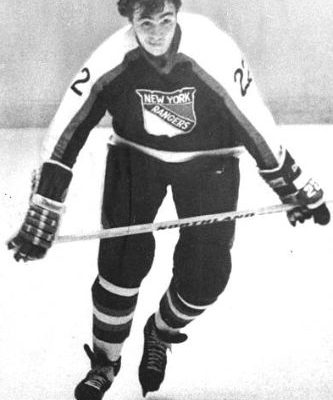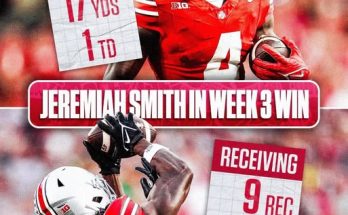On this day in 1976, something extraordinary happened for both the New York Rangers and the borough of Staten Island. The Rangers inked a deal with a tough, unrelenting left winger who would come to symbolize not only the grit of the hockey franchise, but also the spirit of working-class New York. Nick Fotiu, born and raised on Staten Island, was signed by the team he had idolized growing up. What made the moment truly special wasn’t just that the Rangers were adding a rugged enforcer to their roster, but that a native son of the city was donning the sweater of the Original Six franchise he grew up watching from the blue seats. This was no ordinary transaction in NHL history; it was a cultural milestone that fused identity, loyalty, and labor-class roots in a league long dominated by outsiders.
For years, the NHL had largely been a Canadian enterprise, and even the American teams were often filled with players from towns across Ontario, Quebec, Manitoba, and the like. The notion that a New Yorker could crack an NHL lineup—especially in the rough-and-tumble 1970s—was virtually unheard of. The signing of Fotiu changed that narrative. Here was a kid from Staten Island who fought his way through the minor leagues, through independent circuits and semi-professional squads, to finally earn a place in the world’s most prestigious hockey league. The New York Rangers weren’t just adding a fighter—they were signing someone who bled the city’s ethos. He didn’t just represent the city on his jersey; he embodied its soul.
Nick Fotiu’s path to the NHL was far from conventional. He didn’t have the high-profile junior career or the spotlight of being a top draft pick. Instead, he made his name with his fists, with his hustle, and with an unwavering toughness that set him apart from his peers. Before joining the Rangers, he played for the World Hockey Association’s New England Whalers, where his role was clear: protect his teammates, intimidate the opposition, and energize the crowd. The NHL, still wrestling with the identity of “the Broad Street Bullies” era led by the Philadelphia Flyers, was a league that valued enforcers. But Fotiu wasn’t just muscle. He had something else—an unmistakable New York charisma, a sense of loyalty to the city, and a streetwise mentality that endeared him instantly to Rangers fans.
The very first time Nick Fotiu stepped onto the ice at Madison Square Garden as a Ranger, the crowd roared. This wasn’t a polite clap for a recent call-up or a curious cheer for a newcomer. It was a thunderous, booming ovation for one of their own. Fans in the upper decks—the so-called “blue seats” where the rowdiest, most passionate Rangers faithful resided—felt a deep, almost familial connection with him. They had shared the same subways, walked the same city streets, and understood the relentless hustle it took to get anywhere in New York. Nick Fotiu wasn’t just playing for the Rangers; he was playing for them.
And he knew it. After every game, win or lose, Fotiu would do something that would become legend—he’d toss pucks into the blue seats. Not for publicity. Not because someone told him to. Because he had once sat in those very same seats, cheering on players like Rod Gilbert and Jean Ratelle. He knew how magical a puck could be to a kid who might not have had much else to take home from the night. It wasn’t showmanship. It was gratitude. It was memory. It was connection. And it resonated through the Garden louder than any horn after a goal.
Fotiu’s role on the ice was never about scoring titles or fancy stick-handling. He wasn’t going to light up the stat sheet, but he was going to make you remember him. Whether it was a perfectly timed hit against the boards, a fight that sparked a comeback, or simply the way he skated with purpose, he gave everything he had in every shift. He was a spark plug—a tone-setter. Coaches valued him not just for his grit but for his leadership, his understanding of what it meant to wear the jersey, and his ability to galvanize a locker room with sheer force of will.
In many ways, Fotiu’s presence on the Rangers came at a transformative time for the franchise. The mid-to-late 1970s were filled with intense rivalries, especially against the Flyers and the Islanders. Those were teams built around physicality and intimidation. To survive and thrive, the Rangers needed muscle, but they also needed heart. Nick Fotiu gave them both. His fights weren’t just brawls—they were statements. When he dropped the gloves, it was as if he were defending not just a teammate, but the entire city. And the crowd loved him for it.
But there was a human side to Fotiu that often got overlooked amid all the rough-and-tumble play. Off the ice, he was engaging, warm, and generous. He didn’t retreat into celebrity. He stayed close to his roots, often giving back to the Staten Island community that raised him. From youth hockey clinics to charity events, Fotiu was a visible and present figure. Kids looked up to him—not just because he had made it, but because he had done so without compromising who he was. He didn’t have to pretend to be someone else to make it in the NHL. Being Nick from Staten Island was enough.
There’s a saying in sports that some players play for the name on the back of the jersey, and others for the crest on the front. Fotiu was different—he played for the people in the stands. He played for the doormen, the janitors, the construction workers, the cops, the bus drivers. He played for the people who rarely saw themselves reflected in the professional athletes of the time. And that representation mattered. It made the impossible seem possible. If Nick Fotiu could make it, maybe so could you.
Over the years, his name became synonymous with toughness and loyalty. He would eventually play for other teams, including a return to the Whalers and a brief stint with the Calgary Flames, but he always remained a Ranger in the hearts of New Yorkers. And his legacy didn’t end when he hung up the skates. He went on to coach, mentor, and inspire a new generation of players. His story was often used as a lesson in perseverance—an example of how heart could trump pedigree, and how where you’re from doesn’t have to dictate where you’re going, but it can fuel the fire.
In the modern NHL, where analytics and skill dominate the conversation, it’s easy to forget the importance of culture. Teams are still searching for identity, still trying to cultivate an environment where fans feel part of the journey. Fotiu’s story remains a blueprint. Not every team can have a superstar born in their backyard, but every team can find a player who respects what the jersey means. Every franchise can benefit from someone who plays not for fame, but for the love of the game—and the people watching.
Looking back nearly fifty years later, the signing of Nick Fotiu stands as more than just a roster move. It was an emotional investment. A nod to the idea that hockey, like life, is often about showing up every day with courage, determination, and authenticity. For the Rangers, it marked the beginning of a unique bond between the franchise and its fan base—one that continues to define the team today. Fotiu’s tenure reminded the organization that there’s power in being real, in being relatable, and in never forgetting where you come from.
So as we reflect on July 28, 1976, and what that date means in Rangers lore, we’re reminded of the enduring impact one player can have. Not because he filled highlight reels or won major awards, but because he showed a city that dreams aren’t just for the suburbs or faraway towns in Canada. Sometimes, they start on the concrete streets of Staten Island, in the heart of a kid who simply refused to give up. And sometimes, when those dreams meet the right team at the right time, they ignite something bigger—a legacy that transcends statistics, one rooted in pride, passion, and the unbreakable spirit of New York.



